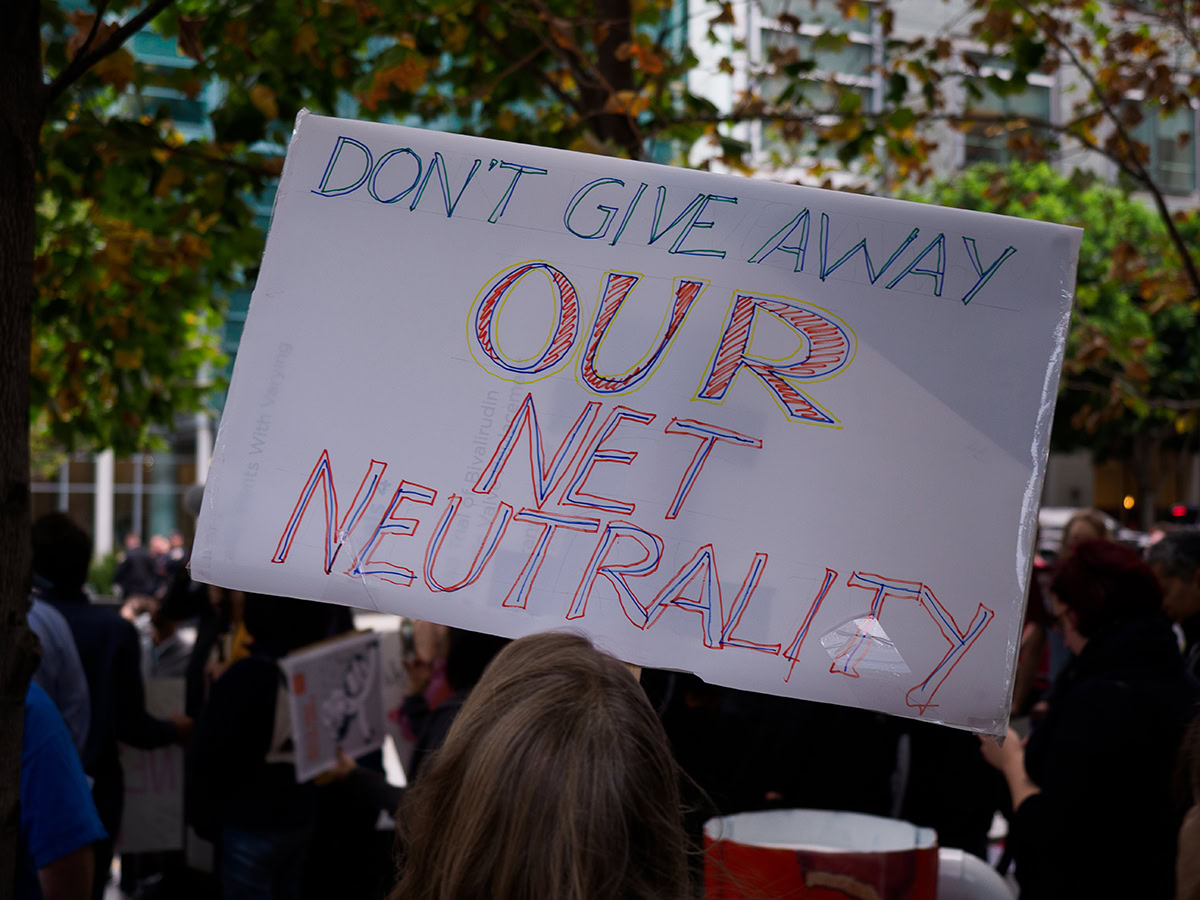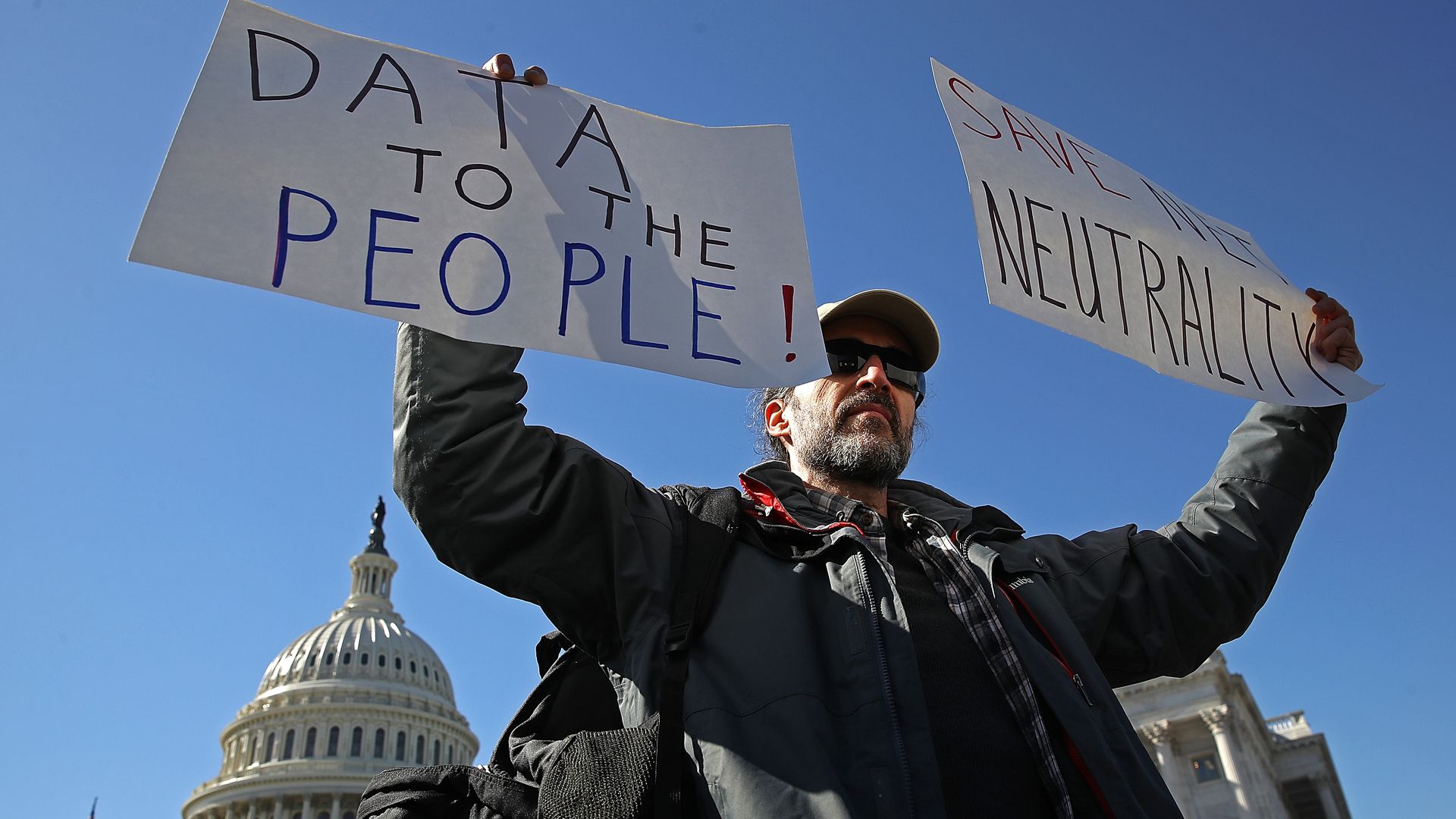Affiliate links on Android Authority may earn us a commission. Learn more.
US net neutrality bill gets closer to becoming law, but don't get your hopes up

The U.S. House of Representatives passed the Save the Internet Act (H.R. 1644) on a vote of 232-190, according to The Hill. Unfortunately for net neutrality advocates, the proposed legislation now faces significant roadblocks.
The Save the Internet Act is the latest attempt by House Democrats to bring back Obama-era rules on net neutrality. Only four pages long, the bill reverses the Federal Communications Commission’s net neutrality repeal from 2017 and turns net neutrality rules into law. Codifying the rules into law would make it difficult for future FCC chairs to undo the rules.
BREAKING: The House just voted to make #NetNeutrality the law of the land. They got right what the @FCC got wrong when it rolled back open internet policies. This is big. The American people are not done fighting for an open internet & I’m proud to stand with them in that fight.— Jessica Rosenworcel (@JRosenworcel) April 10, 2019
Originally enacted during President Barack Obama’s time in office, net neutrality prevents ISPs from offering paid fast lanes and throttling traffic from and to certain websites. The rules classified the internet as a public utility until the FCC voted 3-2 along party lines to repeal them in December 2017.

The Save the Internet Act basically brings those rules back. According to Mike Doyle (D-PA), the bill’s main sponsor, it also reaffirms the FCC’s power and authority. “Today, nobody is enforcing the rules. There’s no cop on that beat,” Doyle told Next Pittsburgh.
“Chairman Ajit Pai, when he repealed the open internet order, basically just abdicated the FCC’s authority to regulate the ISPs.”
A dark future, a hopeful future
Unfortunately for Doyle and proponents of the Save the Internet Act, the bill faces two significant hurdles — the U.S. Senate and President Donald Trump. Yesterday, U.S. Senate Majority Leader Mitch McConnell (R-KY) told Reuters that the Save the Internet Act is “dead on arrival in the Senate.”
Republicans currently hold a majority in the Senate. That means bill supporters would need at least four GOP senators to vote yes on the Save the Internet Act in order for it to land at Trump’s desk.
Even if it passes the Senate, it sounds like Trump will oppose the bill. In a statement released on Twitter, the White House’s Office of Management and Budget said the Save the Internet Act “would instead return to the heavy-handed regulatory approach of the previous administration.”
OMB Statement of Administration Policy *Update*:H.R. 1644, Save the Internet Act of 2019— OMB Press (@OMBPress) April 8, 2019
According to the statement, Trump’s advisers will recommend that the president veto the bill.
Even with such significant roadblocks, there’s still a silver lining. Senate Commerce Committee Chair Roger Wicker (R-MS) told Vox that he plans to block the Save the Internet Act. Wicker also said that he’s open to bringing a bipartisan net neutrality bill possibly later this year.
“It would be nice to have a bipartisan compromise that makes it clear the internet needs to be open, free from blocking, but also open to innovation and letting small businesses come in as they’ve done in the past and have an opportunity to become successful.”
NEXT: YouTube TV adds more channels, raises price for a second time